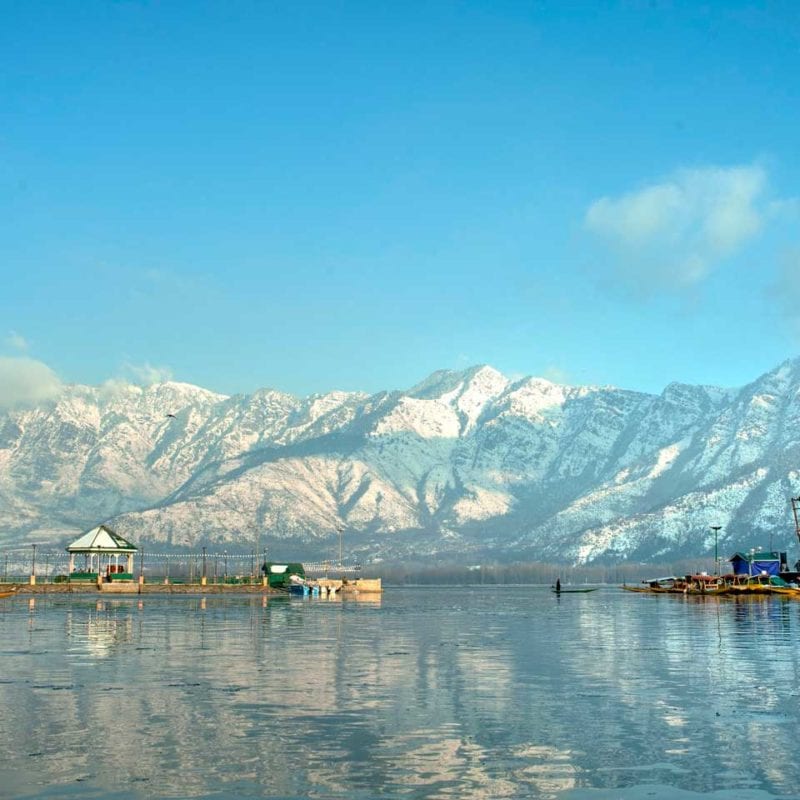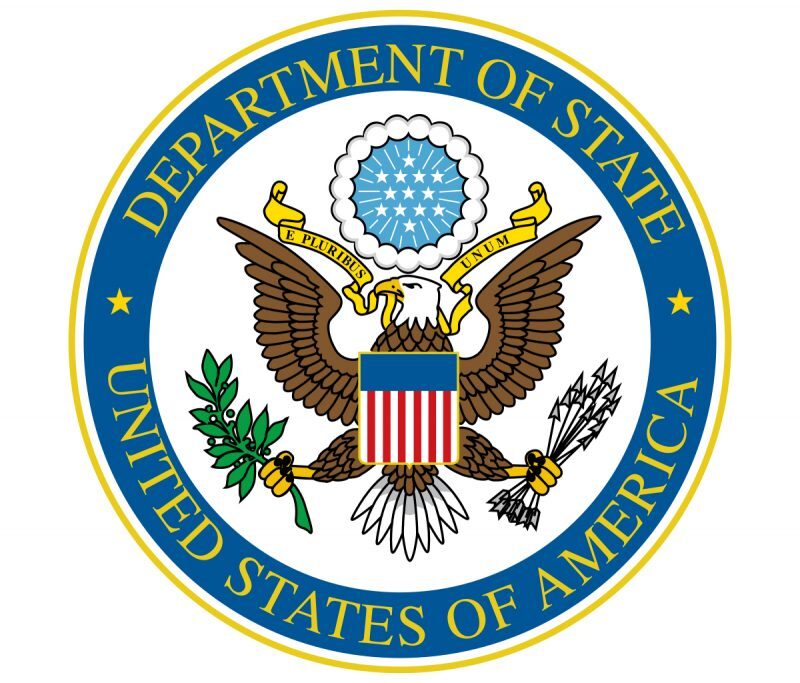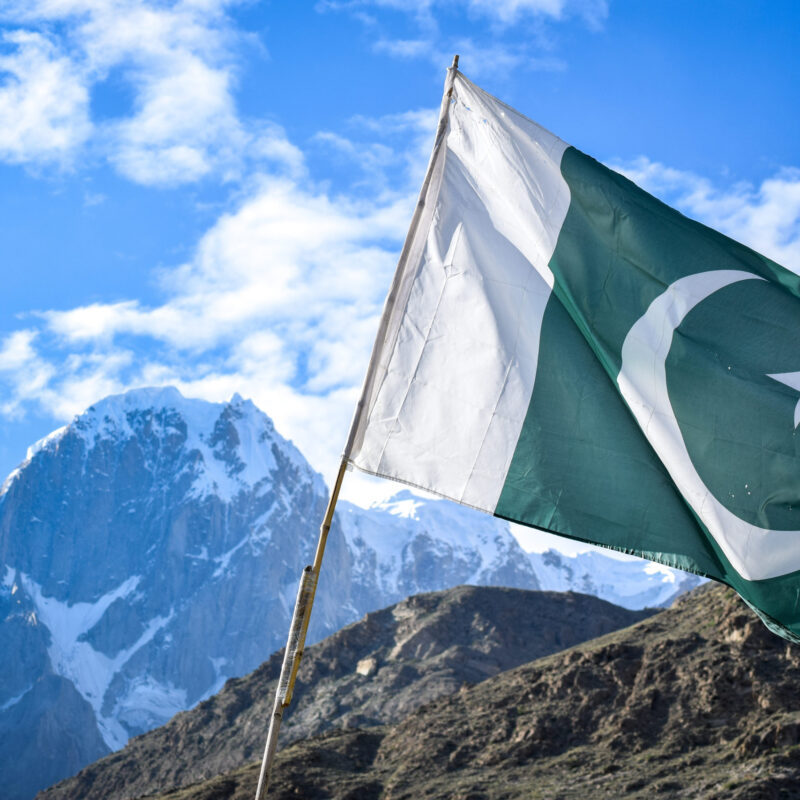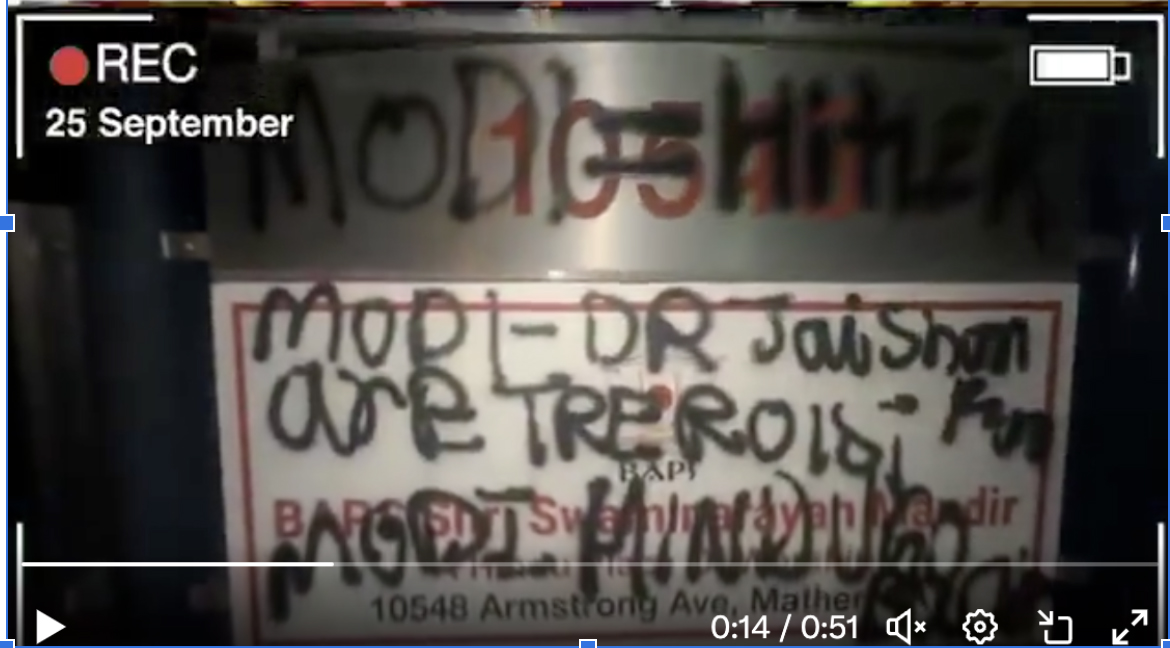
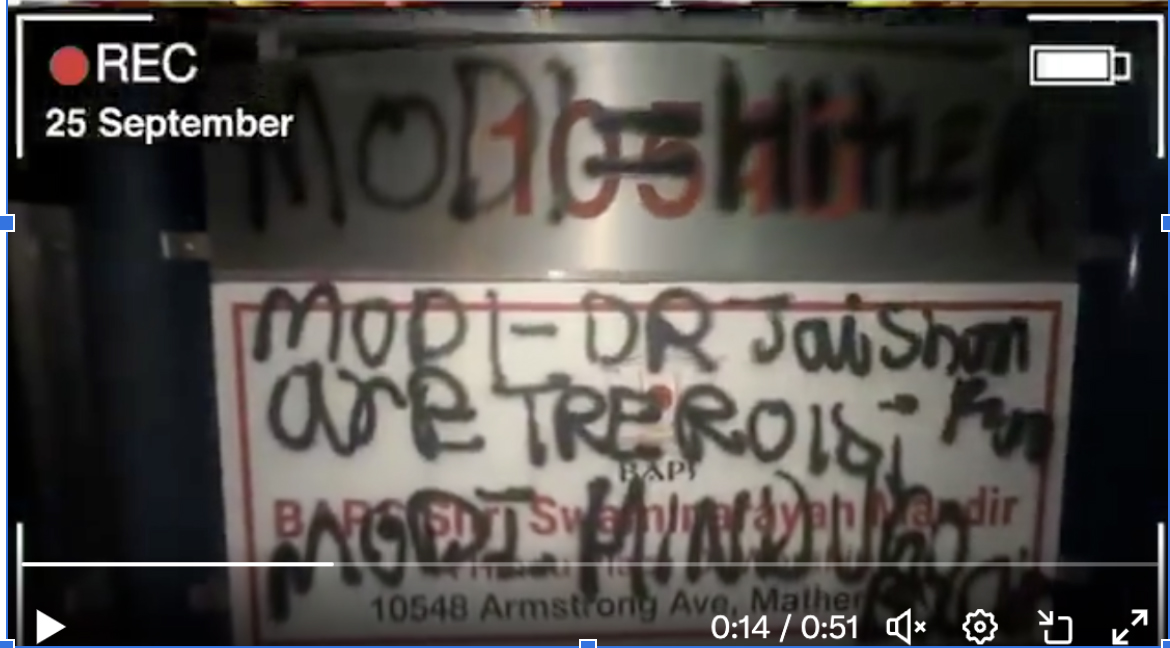
Life is always full of surprises! When sought with all earnestness, it connects dots as we explore our identities with ” who am I ” and “what else is out there?”
This exploration, to me, has been about finding congruence between my myriad aspirations, identities, and journeys, from being an engineer to a Hindu Advocacy professional, at the root of which lies the strongest one of being a first- generation Hindu Indian American, living in the US.
And today, on August 15th, the 78th anniversary of India’s Independence Day, I’m a mixed bag of emotions – happy yet sad, celebratory yet worried, hopeful yet anxious. I feel a cognitive dissonance between being a Hindu and an Indian American immigrant.
Exactly two years ago, on August 15th, I started my dream job, as the CA Regional Director for the Hindu American Foundation (HAF) — a role that marries my Hindu identity, my Indian ancestry and my adopted American identity. These three identities embody the ideologies of freedom, self-empowerment, and infinite possibilities and have enabled my constant growth. Being Hindu and Indian American are essentially the same to me. They don’t contrast, but complement each other. They don’t limit, but liberate. But the very spaces that model these ideologies to me, my Hindu temples, are under attack today here in America.
Since December 2024, exactly eight Hindu temples or mandirs across the US have been vandalized, with the majority being in my state of California. Mandirs are not only places of worship but also community centers that promote equality, rich cultural diversity, intellectual, philosophical, and spiritual forums, as well as charity/ community building, nurturing a strong, talented, and hard-working global Hindu diaspora that contributes immensely to American society and the economy. In short, mandirs are at the essence of everything America, a nation built by hard-working immigrants like me who thrive in their cultural and religious identities. After all, isn’t America the land of the free, sought by those seeking religious freedom? So, isn’t attacking a mandir or a place of worship equivalent to attacking America?
I vividly remember September 15th, 2024, when I woke up to the horrifying news that the BAPS mandir, here in Mather, Sacramento, CA, had been vandalized earlier that morning. My body froze, my heart stopped as I read in the news. I visit the Mather BAPS mandir frequently, with my first one being after the COVID-19 pandemic, for Diwali celebrations. The temple glowed, beautifully decorated with flowers, multicolored lights, and rangolis, along with the offerings of the world-famous divine Raj Bhog. Devotees, dressed in traditional Indian attire and beaming with joy, sought the blessings of the sacred and greeted each other with great enthusiasm while feasting on traditional Indian cuisine. Finally, after two years of lockdown, the entire Sacramento Hindu community was able to gather in a spiritual space and truly celebrate Diwali and a Hindu New Year for many. I felt at home, exuberant and grateful for the mandir!
So an attack on the mandir felt like an attack on my home and me! Fighting tears and many fears, I visited the mandir, as HAF, for the first press conference post the attack. The graffiti on the temple entrance sign and the road read, “Go back, Hindus.” My entire body shrank and I could sense rising anger and frustration, like a death blow to my Hindu Indian American identity, as I read the ugly signs. My immediate reaction? ” How dare they? And seriously, what the HELL? ” Is everyone asleep in America? In the past seven months, messages that have consistently shown up on our mandirs have been “Hindustan Murdabad”, “Fuck Modi” & “Hindu go back home”. Mandirs are our sacred spaces and the Hindu community’s only connection to India, our spiritual homeland, ones we thought were untouchable and always safe in America?
The rest of September 15th, 2024, felt increasingly uncomfortable, as though a knot kept growing in my gut, one that I couldn’t manage to untie. Like many others in the community, I felt confused! Hindu American WhatsApp groups blew up that day. Attacks like these can raise existential questions in immigrant communities! Like others, I too pondered. “Am I not welcome anymore as a Hindu in this country? Should I acclimate more to be an American? What the hell does that even mean? How can I be an Indian American without being a Hindu? What about my children and future generations? Would they want to be Hindus anymore? Does being a Hindu American mean being unseen, unsafe, and uncared for? Should I pack my bags and go back to India? But is that even an option for Hindus born and raised in this country? And wait! Why the hell should Hindus leave? What crime did we commit?”
Additionally, I felt like extremists like Khalistanis were dragging me into conflicts that don’t reflect my history or realities in India, even today. Enough and more evidence points to the Khalistani connection in these attacks, which aim to divide the Hindus and Sikhs in the Indian diaspora, two communities that are family worldwide, celebrate each other’s festivals and holy days, and have always been for each other with the same ideologies and beliefs. So why this sudden growing hatred, disrupting harmony and unity, just because a senseless tiny, extremist group decided that they wanted to separate from India? Why pull the Indian diaspora into a non-existent conflict?
The latest attack on the BAPS mandir in Greenwood, Indiana, on August 11th, just four days from the 78th anniversary of India’s Independence, speaks volumes about the separatist ideologies of the Khalistanis. The attack is also indicative of the abject apathy by law enforcement and elected officials who thrive on Hindu American support. What if extremists attack a church or a mosque here in America? Would there even be a second attack, let alone eight in a row? Or is it us, the Hindu community, that is to blame? That lacks the courage to call out the perpetrators, despite clear evidence, and instead always chooses to clean up the mess, hold a peace vigil, and move on, only to repeat the cycle all over again when yet another mandir is attacked? Are we so naive to assume that “harmless graffiti” smeared overnight on our mandir boards is pretty much the only issue and danger? Are we desensitized enough to accept that having a Hindu mandir means putting up with vandalism? Would we be ok if this happened to our homes?
OR are we as a community and country so careless that we shall wait until a shooting of innocent worshippers in a mandir to truly wake up?
After all, the Khalistanis, an extremist group suspected behind these attacks, have blown up an entire plane and have been recently convicted of serious, heinous crimes by the FBI. Why should we assume that these acts of vandalism are not attempts by the criminals to test our reactions and patience? Shouldn’t a chain of attacks like this be of concern to the entire country, not just Hindus? Hindu temples have been present in America for over 100 years, with nearly 1,000 across the US today. One of the largest Hindu temples in the world is located in New Jersey, drawing scores of international tourists. Our temples are an integral part of the American neighborhood and an attack endangers every member of the American community, from a kid to a senior citizen. Sadly, mandir visits are no longer peaceful and joyful to me! Instead, I’m anxious, worried, and watching behind my back!
The only silver lining? Well, I’m being a true Hindu in the midst of all this. Working for HAF means non-stop advocacy for Hindus in the US. At the core of my Hindu identity is making relentless efforts, regardless of its outcome. Isn’t this the central message of the Holy Bhagavad Gita, by Bhagwan Shri Krishna, whose birthday we celebrate today on August 15th, 2025, as Krishna Janmashtami? So if we claim to be true Hindus and worshippers/ followers of Shri Krishna, shouldn’t we do more for our mandirs?
I’m being a true Hindu. Are you?


